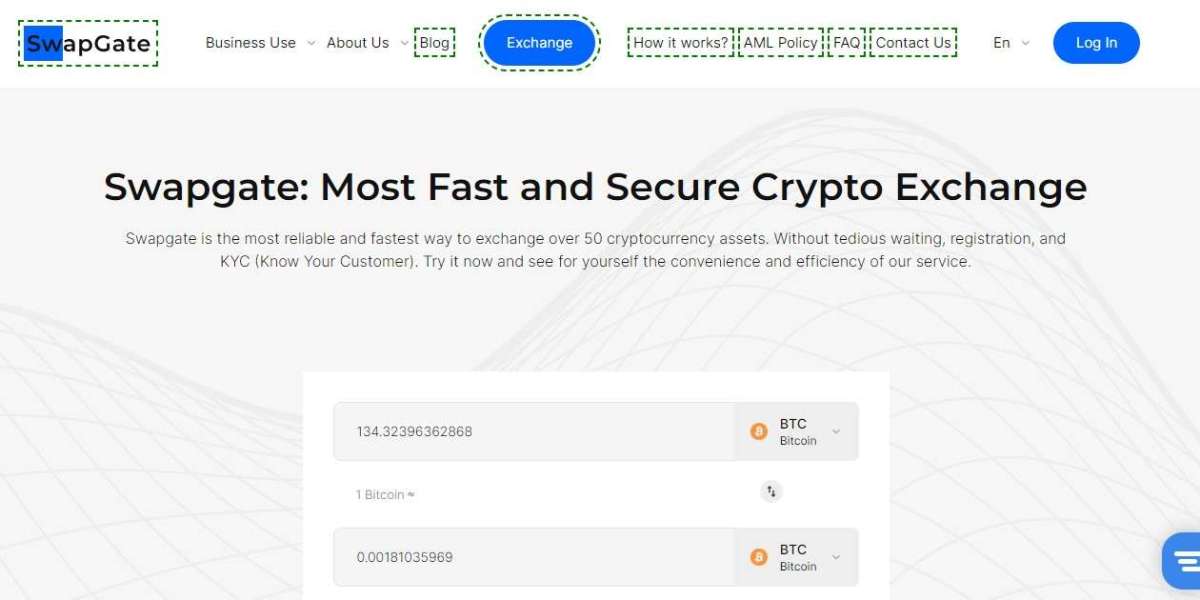Introduction
Bitcoin, the pioneering cryptocurrency, has become a prominent player in the financial world since its inception in 2009 by the pseudonymous Satoshi Nakamoto. As the first decentralized digital currency, Bitcoin allows for peer-to-peer transactions without the need for a central authority. A crucial component of the Bitcoin ecosystem is the bitcoin exchange, a platform where users can buy, sell, and trade Bitcoin. This article delves into the intricacies of Bitcoin exchanges, explaining their types, how they work, and their significance in the broader cryptocurrency landscape.
What is a Bitcoin Exchange?
A Bitcoin exchange is an online marketplace where users can buy and sell Bitcoin using various currencies, including traditional fiat money and other cryptocurrencies. These exchanges act as intermediaries, matching buyers with sellers and facilitating transactions. They provide a platform for users to trade Bitcoin in a secure and efficient manner, ensuring the liquidity and stability of the Bitcoin market.
Types of Bitcoin Exchanges
Bitcoin exchanges can be broadly categorized into three types: centralized exchanges, decentralized exchanges, and peer-to-peer exchanges.
Centralized Exchanges (CEX): Centralized exchanges are the most common type of Bitcoin exchange. They operate as intermediaries between buyers and sellers, holding users' funds in custodial wallets. These exchanges offer a user-friendly interface, high liquidity, and advanced trading features. Examples include Coinbase, Binance, and Kraken. However, centralized exchanges are vulnerable to hacks and regulatory scrutiny, as they store large amounts of user funds.
Decentralized Exchanges (DEX): Decentralized exchanges operate without a central authority, allowing users to trade directly with one another. DEXs utilize blockchain technology and smart contracts to facilitate transactions, ensuring greater privacy and security. Examples include Uniswap, Sushiswap, and PancakeSwap. While DEXs offer enhanced security and control over funds, they often lack the liquidity and user-friendly interfaces of centralized exchanges.
Peer-to-Peer Exchanges (P2P): Peer-to-peer exchanges connect buyers and sellers directly, enabling them to negotiate and complete transactions without an intermediary. These platforms offer more privacy and can be useful in regions with strict regulatory environments. Examples include LocalBitcoins and Paxful. However, P2P exchanges may pose higher risks of fraud and require users to exercise caution.
How Bitcoin Exchanges Work
Bitcoin exchanges function similarly to traditional stock exchanges, with a few key differences. Here is a step-by-step overview of how they work:
Registration: Users need to create an account on the exchange platform, providing necessary identification and verification documents as required by the exchange's policies and regulatory guidelines.
Deposits: Once registered, users can deposit funds into their exchange account. Deposits can be made using various methods, including bank transfers, credit/debit cards, or other cryptocurrencies.
Trading: Users can place buy or sell orders on the exchange. A buy order specifies the amount of Bitcoin the user wants to purchase and the price they are willing to pay. Conversely, a sell order specifies the amount of Bitcoin the user wants to sell and the price they are asking for. The exchange matches buy and sell orders, facilitating the trade.
Withdrawals: After completing a trade, users can withdraw their Bitcoin or fiat currency from the exchange to their personal wallets or bank accounts.
Security Measures on Bitcoin Exchanges
Given the high-value nature of Bitcoin transactions, security is paramount for Bitcoin exchanges. Reputable exchanges implement several security measures to protect user funds:
Two-Factor Authentication (2FA): This adds an extra layer of security by requiring users to provide two forms of identification before accessing their accounts.
Cold Storage: Exchanges store the majority of user funds in offline wallets, known as cold storage, to protect them from online hacks.
Encryption: Sensitive data and communication on the exchange are encrypted to prevent unauthorized access.
Insurance: Some exchanges offer insurance policies to cover user funds in the event of a hack or security breach.
Regulatory Landscape for Bitcoin Exchanges
The regulatory environment for Bitcoin exchanges varies significantly across different jurisdictions. While some countries embrace cryptocurrency and have established clear regulatory frameworks, others have imposed strict restrictions or outright bans. Key regulatory considerations for Bitcoin exchanges include:
Anti-Money Laundering (AML) and Know Your Customer (KYC) Compliance: Exchanges are required to implement AML and KYC procedures to prevent illegal activities such as money laundering and terrorist financing.
Licensing: In many countries, exchanges must obtain licenses or registrations to operate legally. This ensures they comply with local regulations and financial standards.
Tax Reporting: Exchanges may be required to report user transactions to tax authorities, ensuring users comply with tax obligations on their cryptocurrency holdings.
The Future of Bitcoin Exchanges
As the cryptocurrency market continues to evolve, Bitcoin exchanges are likely to undergo significant changes. Innovations in blockchain technology, increased regulatory clarity, and growing institutional interest are expected to shape the future of Bitcoin exchanges. Key trends to watch include:
Integration with Traditional Finance: More exchanges are likely to integrate with traditional financial systems, offering seamless fiat-to-crypto conversions and advanced trading products.
Enhanced Security Measures: Advances in cybersecurity and blockchain technology will lead to improved security measures, reducing the risk of hacks and fraud.
Regulatory Harmonization: Global efforts to harmonize cryptocurrency regulations will provide clearer guidelines for exchanges, fostering a more stable and transparent market.
Conclusion
Bitcoin exchanges play a vital role in the cryptocurrency ecosystem, providing a platform for users to buy, sell, and trade Bitcoin. Understanding the different types of exchanges, how they work, and the security measures they employ is essential for anyone looking to engage in Bitcoin trading. As the market continues to grow and evolve, Bitcoin exchanges will remain at the forefront of the cryptocurrency revolution, driving innovation and adoption in the digital finance landscape.












